- Thursday, 19 February 2026
Can Politics Be Shaped As Virtuous Sphere?
Virtuous public sphere supposes that politics acquires the capacity to perform better as per its constitutional and leadership promises than the current situation and be able to acquire institutional vocation for the general good of Nepalis, not leaving them frozen, out of the corridor of power and often thrilled to agitate. Politics turns virtuous if its myriad of activities positively contributes to each other producing desirable outcomes for general Nepalis. In this sphere, each worthy initiative leads to another equally venerable job and reforms are up-scaled by means of constant feedback between leaders and people. To cling to power without worthy purpose and performance can only denigrate the leaders and their institutional foundation of authority and legitimacy.
Virtuous politics can moderate the natural drive of Nepalis — passion, appetite and anxiety and expand their vital spirits —freedom and choice so essential to uphold an ethics of responsibility and judgment. This can transform the vicious cycle of Nepali politics rooted in reckless power struggle into a virtuous cycle of rational functions for public goods and prosperity. It can allow Nepalis to act according to their own will, moral compassion, candor and courage and take accountability for the choice of leadership even if they face habitual ruse or pillory.
Ideological image
Now the ideological image of Nepali political parties is being tested by the revenge of power politics over idealism where people find the illusion of progress battering them owing to thin distribution of power, wealth, educational, health and job opportunities across the society, techno-driven new stratification of society and the onset of external dependence for livelihood. As morality is replaced by utility and law and resentful manifestation of human nature, the constitutional vision of creating an egalitarian society remains an uphill task. As a result, much of Nepali intellectuals’ energy is spent on reforming politics, near-invincibility of top leadership of most political parties, corroding institutional performance, hazy amendment of constitution and strain on democratising the nation’s political culture.
It is high time to pull people together and link them to an organised life of a virtuous political sphere where they can learn about citizenship rights and responsibilities and gain confidence to decide their own destiny. It can transform parochial and partisan politics into national perspective and turn national weakness into collective strength. Politics embedded in the virtuous public sphere can be a good template to reflect on the human condition which is essential for Nepalis to find a life of choice. It uplifts them and even offers solace to a broken heart.
The stable site of politics is the Nepali state. Strengthening it can enrich the sanctity of politics from the risk of subversive and predatory forces, thieves of state and wild activism. Its sanctity can foster the integrity of public life and the sovereignty of Nepalis. The start of national consciousness about the looming crises now in every sphere of life can challenge the mediocrities thriving in the maze of corruption, chaos and uncertainty. Crisis is a situation that demands knowledgeable leadership and context-sensitive experts in authority, power and legitimacy.
Exclusively partisan approach, however, pits historically resonant unity-in-diversity against each other and fails to create common ground for the resolution of conflict through dialogue and rebuilding the social spirit of Nepali society for national cohesion. Creation of just public institutions in Nepal is essential as they forbid exclusion or skewed representation of interests in an old style elite politics. Politics cannot shift its site from one state to another as people have selfish genes. The business is mobile. It can easily shift its site from one nation to another depending on the scale of profit and laxity of law akin to zero-sum game.
Nepali leaders of all hues are tied by mutual affinity and accusation depending on personal benefit. They are exhausted by general weariness and sterility, unable to change this attitude and are driven by the resonance of bitter idioms they express to their rivals. They have to negotiate with them in the future for undertaking any worthy initiative and focus on alleviating material and intellectual poverty that stunts civic consciousness, empathy, compassion and an ability to wipe the tears in every eye troubled by existential risks.
They are the keys to establish transitional justice and renew Nepali society’s bridging and bonding social capital through democratic socialisation and evolve perfect virtues of cognition, temper, desire and attitude able to realise Nepalis’ self-worth and immunise self from the state of throbbing and threat. Without attitude change, the rivals remain stubborn in negotiations. Is it possible to create a virtuous public sphere of politics in Nepal without changing the social, economic and administrative culture upon which it is grounded? Politics gains élan from the institutional structures of political parties. Nepali parties, however, show a constant trend of fission and fusion, not institutionalisation and stability.
Younger generation and marginalised social classes demand democracy, deliberation and discipline in their inner life. It enriches their vitality in the external sphere. Political leaders too need to cultivate the inner life of introspection for character building and find a clear thought of how to promote the good life of Nepalis. The key element for this life is civic virtues -- acquiring democratic habits and disposition vital for the enrichment of Nepali society, polity and the state marking an exile of irrationality in public life and public policy. These virtues improve the civic competence of people and orient them to the attainment of wellbeing of all members within democratic parameters.
The infatuated race for economic profit and power can kill the resilience of nature and a mature society and democracy that needs the foundation of deep wisdom, dignity of people and meeting of livelihood needs beefed by trustworthy government, welfare state and civil society hopeful to meet the aspiration of Nepalis. These attributes are central to the timely social transformation of feudal, patrimonial and paternalistic mode of governance largely based on power of privilege and domination and perpetuation of the bondage of poverty, inequality and discrimination against the spirit of constitution.
A democratic politics based on its lofty ideals can be conceptually divorced from violence and authoritarianism as both the inclinations discourage Nepalis battle for the sovereign soul of this nation and adjust to the future prospect of a virtuous life in the lyrics of the electronic age gyrated by the media bubble. Ironically, the traditional moral teaching in Nepal has been replaced by modernity’s ideals -- rationality, efficiency, competitive spirit and pay offs. It calculates only the outcome, not the process. It is pushing Nepali politics to another form of parochialism lacking national perspective to synthesise a large number of belief systems and experiences of people and re-imagine a common future.
In heterogeneity of social, cultural, economic and political sites, Nepal needs a shared template so that many issues including transitional justice can be settled. Virtuous politics is geared by a vibrant public sphere to debate on issues, shape public opinion and set priorities. Only then can Nepali politics supply public goods. Two premises are vital: one is the use of inter-disciplinary experts able to grasp the vision and needs of people crucial for the transition of classical power politics to a politics based on the values of human rights, social justice, equity and participation. The other is certain regulation of commercial and partisan media that advertise only brands and exert pressure on society for a fusion of consumerism and soiled politics.
Civil society, public intellectuals and independent media can serve as a critical leverage to control these trends and bring politics from its mundane game of power lust, privilege, profession and status quo to innovation, entrepreneurialism, public orientation and socialisation to pull diverse people together for value-based politics, induce attitude change, craft understanding and goals for resolute collective action for nation-building. Nepali civil society groups working with the people are linking market-atomised individuals.
But they are low leverage actors to enforce the accountability of leaders to their actions. Private sectors are high leverage actors as they finance parties and leaders, influence policy and vital decision-making. They need social responsibility and transparency of their transactions, not tax evasion which stymies the ability of democracy to shape virtues in society for law-based order cemented by qualities of norms, values, rituals, decency and reciprocity transcending plurality of origins, faiths, affiliation and institutions and seeking an art of balance in an age of radicalism and rage.
Political logjam
Constitutional change alone cannot strengthen democratic institutions for two reasons: lack of constitutional behaviour of powerful elites and political recruitment of many leaders outside the tradition of democratic tradition of politics. One can find the political sphere of parties, legislature, political system and the state being penetrated by non-political interest groups. They have methodically disabled leadership to create common ground conditions across the national divides thus producing logjam in dialogue, legislative sphere and communication. This condition amounts to a drift and distrust which inverts the virtuous sphere of politics and gradually alienates and ossifies people.
The growing anomie in the nation is the effects of reducing the political sphere into partisan domain and allowing the growth of subsidiary identity politics. Political stability in multi-polar politics requires the salience of system-stabilising forces and national perspective for effective governance with coherent goals for ecological, social, economic and political justice. It can ease the stake of powerlessness in the polity, discover a better future and relish the virtues of reason and feeling for freedom.
(Former Reader at the Department of Political Science, TU, Dahal writes on political and social issues.)



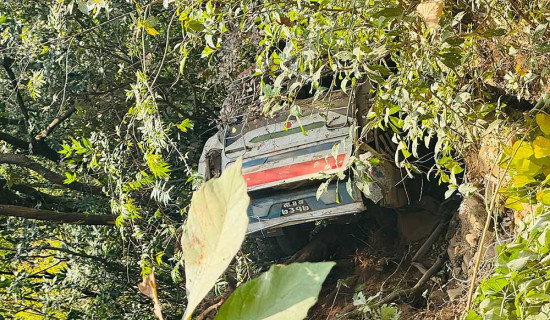
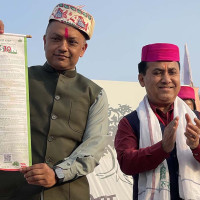
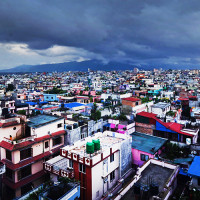
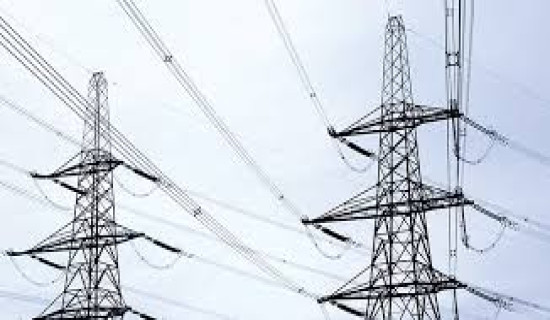
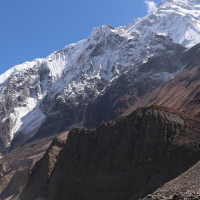
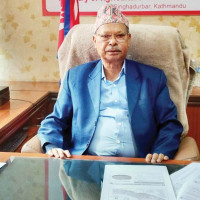
-original-thumb.jpg)






